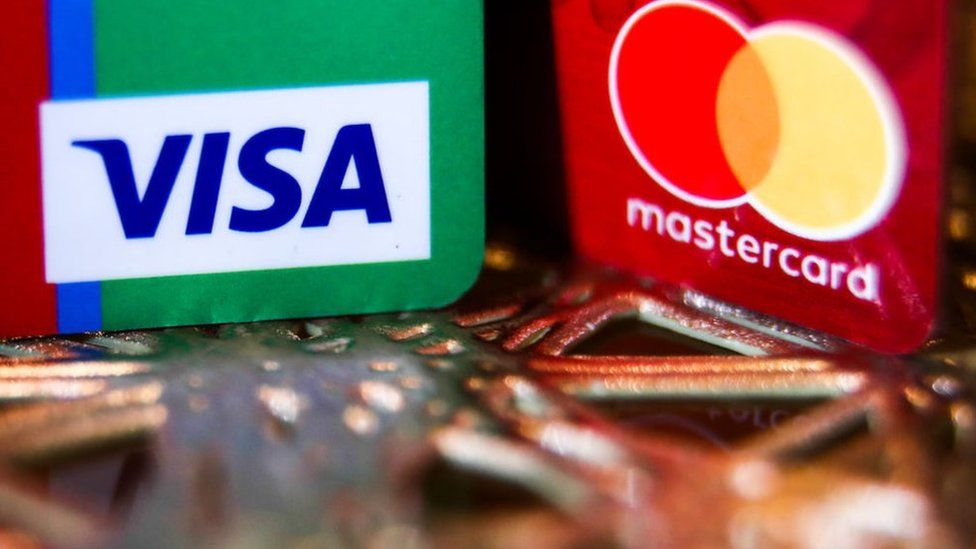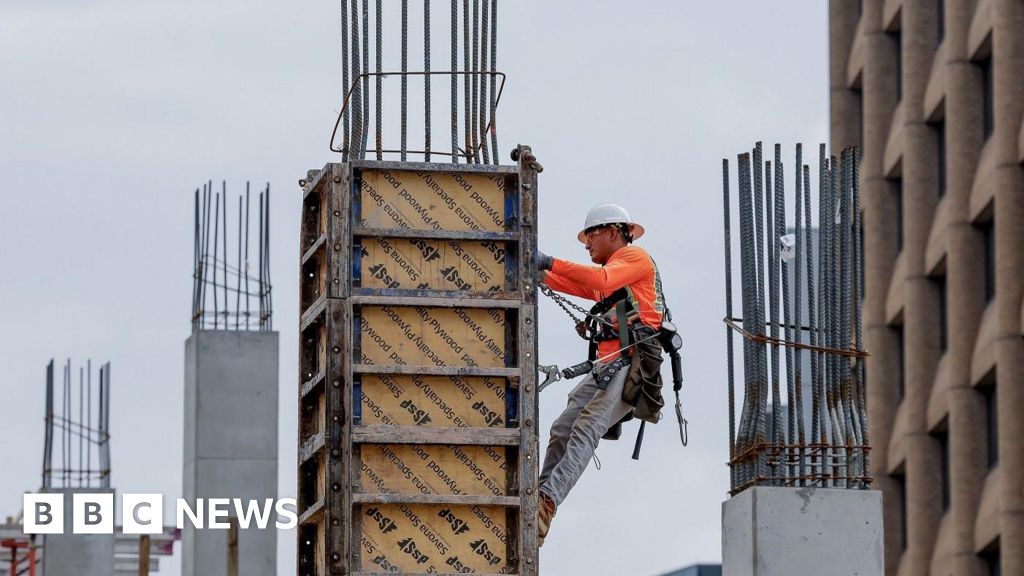ARTICLE AD BOX
 Image source, Getty Images
Image source, Getty Images
The payments watchdog has proposed a cap on fees that credit card firms such as Mastercard and Visa charge retailers for payments between the UK and the EU.
The fees, which can get passed on to consumers, cost UK firms an extra £150m to £200m last year, the Payment Systems Regulator (PSR) said.
The payments giants have probably raised fees to an "unduly high level" since Brexit, the regulator suggested.
However, the firms disputed this, with Visa saying a cap was "not justified".
The European Union (EU) has a cap on so-called "cross-border interchange fees", which retailers pay when customers in the UK buy from the European trading bloc.
But since the UK's exit from the EU, that cap on fees for those European customers buying in the UK doesn't apply.
Mastercard and Visa, however, "significantly raised" the fees charged to UK retailers in 2021 and 2022, the watchdog found.
Larger UK firms might choose to absorb these costs, but smaller companies might have "little choice but to pay the increased costs", a PSR spokesperson said.
"In short, at this stage, we do not think this market is working well," PSR managing director Chris Hemsley said.
The watchdog has proposed an initial, time-limited, cap of 0.2% for debit card transactions, and 0.3% for credit cards, for transactions made online at UK businesses. This would be in line with the EU cap.
Visa strongly disputed the findings of the PSR's interim report though and said its proposals were "not justified".
"Accepting reliable, secure, and innovative digital payments represents enormous value to UK businesses, especially when selling overseas," a spokesperson said.
The fees apply to less than 2% of UK card payments - cardholders in the European economic area buying online from a UK seller - "and reflect the fact that these transactions are more complex and carry far greater risk of fraud," they added.
Mastercard said the fees offer value in a competitive market.
"We do not agree with the PSR's findings and will continue to educate them on the critical importance of electronic payments to the UK economy," a spokesperson said.
The PSR has invited feedback on the proposals before the end of January, with a final report due in the first three months of 2024.
Last month a UK government-commissioned report said Britain needs a "digital alternative" to relying on the US payments giants, echoing longstanding ambitions in the EU for a "home grown" alternative.

 1 year ago
65
1 year ago
65








 English (US) ·
English (US) ·